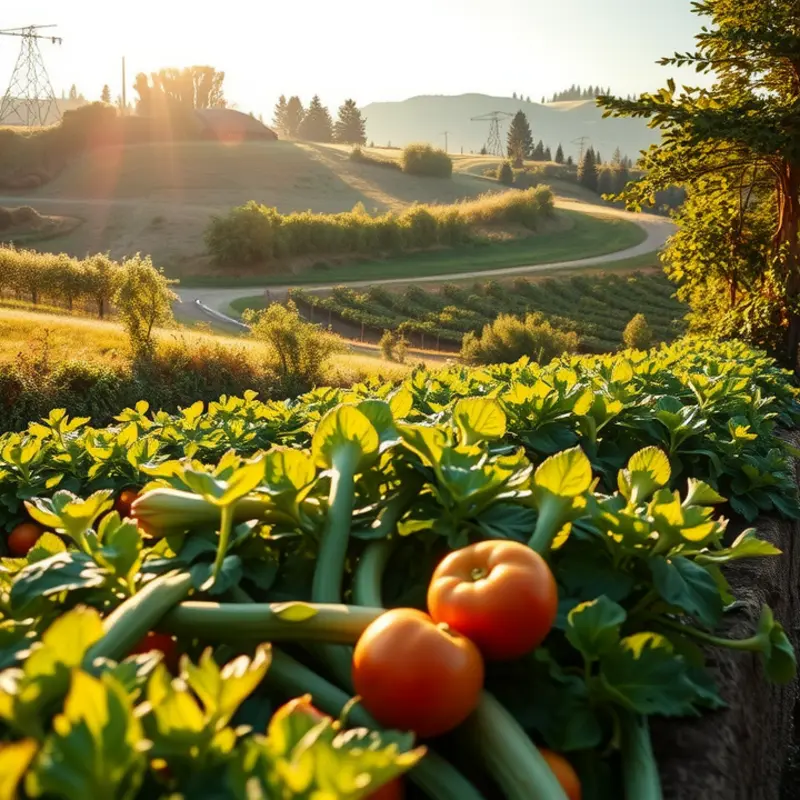Meal prepping not only simplifies meal routines but also helps reduce food waste. For busy individuals and families, organizing meals in advance can relieve daily stress and ensure everyone enjoys nutritious, tasty dishes. By adopting practical meal planning strategies, you can make your kitchen work for you while being kind to our planet.
Smart Planning: The Foundation of Meal Prep

Effective meal prep starts with an organized and adaptable meal plan. To cater to busy schedules while reducing food waste, every plan should be personal, strategic, and flexible.
The first step is identifying key ingredients you typically use. Evaluating frequent recipes ensures that you’re buying what you actually consume. Take stock of your pantry and refrigerator. Essential staples like grains, proteins, and spices should always be in your shopping list. Keeping a basic inventory reduces the risk of overbuying and minimizes waste.
Next, consider versatile recipes. A dish that can morph across multiple meals saves time and resources. For example, grilled chicken can be served as a main dish, tucked into wraps, or topped on salads throughout the week. This approach not only simplifies cooking but also ensures that ingredients are fully utilized.
Shopping smartly is fundamental. Begin by drafting a list, grouping items by category such as produce, dairy, and proteins. Stick to the list to avoid impulse purchases, which often contribute to food waste. Where possible, choose fresh ingredients that can be used in multiple dishes to increase your meals’ diversity without adding numerous items to your cart.
When drafting your shopping list, consider shelf life. Purchase perishables in moderation, aiming to use them earlier in the week. Utilize longer-lasting produce like hard vegetables and frozen goods toward the week’s end.
After shopping, dedicate some time to portion and store your ingredients correctly. Portioning saves time during busy weekdays, and proper storage extends shelf life, further contributing to waste reduction. For more tips on low-waste cooking, browse this article on low-waste cooking and prep.
Lastly, stay flexible. Life is unpredictable, and your meal plan should reflect that. Provide room for spontaneous events by planning one or two meals with ingredients that have a longer shelf life or can be easily frozen. Having substitute items ensures you can whip up meals even when plans change unexpectedly. This adaptability helps avoid last-minute takeout and unnecessary food waste.
By honing your meal prep through strategic planning, you create a sustainable kitchen workflow. From staple-centric shopping to adaptable recipes, thoughtful planning establishes a foundation where efficiency and waste reduction coexist seamlessly.
Efficient Meal Prep: Techniques for Success

Preparing meals in advance not only saves time but also keeps food waste at bay. By adopting techniques such as batch cooking and using clever storage methods, you can have delicious meals ready whenever you need them. Let’s explore some practical steps to streamline your meal prep process.
Batch Cooking Basics
Batch cooking is the bedrock of efficient meal prep. It involves making large quantities of a particular dish that you store for future consumption. Start by selecting a few versatile core recipes like soups, stews, or grain bowls that store well. Allocate a specific day for batch cooking, likely on the weekend, when you have more time to spend in the kitchen. This way, you create a bank of meals that can simplify your weekdays.
When batch cooking, always consider the elements that can be incorporated into multiple dishes. Roasted vegetables, for example, can be added to salads, pasta dishes, or grain bowls. This not only diversifies your meal options but also helps in minimizing food waste by using ingredients more efficiently.
Storage Savvy
Storing your prepped meals correctly ensures they remain fresh and flavorful. Use quality containers that provide an airtight seal. Consider portioning meals into single servings and labeling them with dates to prevent food safety issues. For a more eco-friendly approach, explore options for reusable storage bags or containers. If you’re curious about further environmentally conscious storage methods, click here for insights on eco-smart kitchen storage.
Another tip is to store items in a way that aligns with how you retrieve them. For example, stack containers of similar meals on top of each other in the fridge. This method helps you avoid overlooking meals until they exceed their best-by date.
Quick and Flavorful Recipes
An effective set of easy-to-make recipes can transform your meal prep routine. Recipes that require minimal ingredients but pack a punch in flavor are ideal. Lentil soups, for example, require just a few pantry staples yet offer substantial nourishment. Similarly, consider making whole grain salads. Cook a batch of quinoa or brown rice and mix it with seasonal produce and a simple dressing for a delightful lunch option.
To elevate your culinary creations without relying on excessive seasoning, explore ways to boost flavor naturally. Herbs, spices, and acidic elements like lemon juice can enhance the taste profile of your dishes without using salt. Refer to guidelines on flavor-boosting ingredients to diversify your meals without compromising health.
Remember, preparation is only half the process. A successful meal prep routine is maintained by regularly reviewing what’s in your fridge and freezer. Shuffle meals around to ensure older items are consumed first.
By implementing these strategic techniques, you fortify your meal prep efforts, cut down on food waste, and ensure every meal is deliciously effortless. Let’s make cooking a journey that nourishes both your life and the planet.
Final words
Embracing meal prep doesn’t just save you time; it also plays a crucial role in reducing food waste and supporting sustainable practices. With smart planning and efficient preparation techniques, you can simplify your meal routines and ensure that every ingredient counts. Remember, every little step you take towards minimizing waste is a step towards a healthier planet for future generations. So grab those meal prep containers, get organized, and watch how this impactful habit transforms your daily cooking experience.







